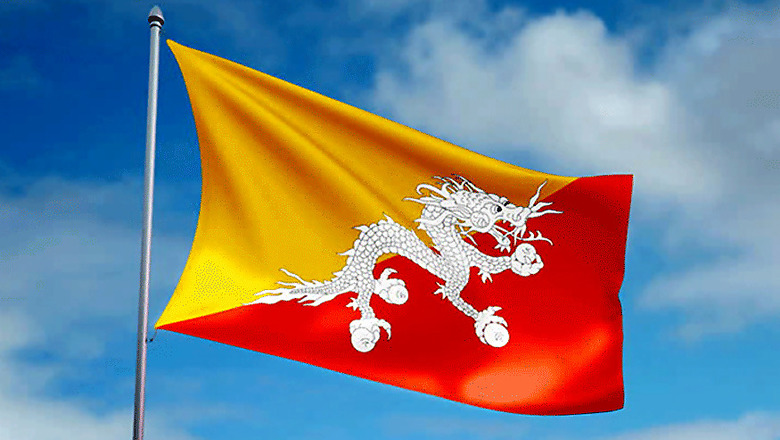
views
In the latest faceoff between Indian and Chinese troops in the Doklam area, the role and place of Bhutan has been easily overlooked. It is the Bhutanese after all that are contending with Chinese over the area and it is they who invited the Indians to take up cudgels on their behalf against the Chinese.
Bhutan is, in many respects, probably India’s only genuine ally in the region and this too, is largely the result of that country’s unique political history and development. The Bhutanese monarchy has played a key role in nurturing a close and beneficial relationship with India and India has in large measure reciprocated. While a tiny country, Bhutan has always been favoured with fairly senior and always competent Indian ambassadors in its capital and maintains the Indian Military Training Team in support of the Bhutanese army. Also worth remembering is the fact that it was to Bhutan that Indian Prime Minister Narendra Modi made his first official foreign visit after taking office.
That said, India should simply count itself lucky that it has managed to maintain a special place for itself in Bhutan’s international affairs for such a long time despite the vagaries of international politics.
It is clear that the Chinese are exerting their might to end this exceptionalism. The Doklam incident is a case in point.
After 24 rounds of Sino-Bhutanese boundary negotiations, there appears to be a public perception gaining ground in Bhutan to settle the boundary dispute with China independently of India. And since settlement might involve compromises, the most likely one would be of foregoing claims in their west, i.e., the Doklam area in return for claims in the north – which are more significant for the Bhutanese themselves from cultural and religious points of view. So far however, the tacit agreement between India and Bhutan that they will settle their boundary disputes with China together, has held.
Meanwhile, China has continuously exerted pressure on Thimphu to open formal diplomatic relations. Its failure thus far has often led its analysts and diplomats to derisively refer to the smaller country as a ‘protectorate’ of India. A recent Global Times editorial, in fact, takes pot shots at Bhutan’s ‘happiness index’ and criticizes its policies on its Nepalese population – part of a broader pattern of the Chinese state’s opportunistic criticism of countries it has problems with.
Naturally, Bhutan – including both the government and the public – itself is acutely sensitive to criticism that imputes it is less than completely sovereign. It is perhaps for this reason that it has also not infrequently tried to assert its voice in international affairs independently of and differently from India. Consider for instance, the Bhutanese parliament’s stalling earlier this year, of the Bangladesh-Bhutan-India-Nepal motor vehicles agreement that India had strongly pushed.
In this context, comparisons with Nepal are not entirely out of place. The differences between the monarchy in Nepal and the Indian government at various stages over the decades eventually culminated in its kings playing the China card frequently against India and this practice has continued into the post-monarchy political dispensation as well. Indeed, in the space of just over a decade in Nepal, China has managed to firmly entrench itself as an influential player in Nepal and a pole in nearly all Nepalese political parties around which those opposed to India gather.
Such a situation does not yet exist in Bhutan but as an electoral democracy – parliamentary elections are due next year – it is only a matter of time before concerns about India, valid or otherwise, will lead to the coalescing of forces that articulate them more cogently, frequently and openly.
And China is helping this process along through its public diplomacy as well as through economic means. For instance, under the Chinese government’s tourism programmes – widely used as a weapon of statecraft – Chinese tourists contribute significant numbers and revenue to Bhutan. Chinese economic leverages are likely only to increase in Bhutan and with these, also political influence.
It is against this reality that the Doklam incident must be evaluated. In fact, in many ways, it might be argued that the Chinese have achieved a more important political objective of putting pressure on the India-Bhutan relationship.
If India sees Chinese proximity to the narrow Siliguri corridor as a military threat, it cannot but be the case that a cooling of relations between India and Bhutan, if not an accretion of Chinese influence in the smaller country, performs much the same function and perhaps, even better. While India tried to preempt such possibilities with the renegotiation of the 1949 treaty with Bhutan in 2007, conditions have remained dynamic and India has not been able to prepare adequately for, leave alone preempt, China’s increasing assertiveness in South Asia.
Jabin T. Jacob is a PhD is Fellow at the Institute of Chinese Studies, Delhi. His Twitter handle is @jabinjacobt. Views are personal




















Comments
0 comment